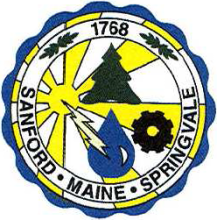Sanford, Maine Plans Largest Municipal Network in the State
A lot has happened in Sanford, Maine since our last report on their municipal fiber optic network discussions. After a year of deliberations over different proposals, the city recently announced plans to begin building a 32-mile municipal fiber-optic network.
The city of Sanford is inside York County, situated about 35 miles southwest of Portland. The network will provide connectivity to businesses, government entities, non-profit organizations, and residences in Sanford along a limited route where there is sufficient customer density. City leaders plan to also provide a foundation for future expansion of the network to additional residential areas in the city. The network will be open access, allowing multiple ISPs to provide services via the publicly owned infrastructure.
The city will partner with Maine-based company GWI (Great Works Internet) to operate the network. Readers may recognize GWI as the same company working with Rockport, Maine's first community to invest in a municipal fiber network.
Once they complete the buildout, Sanford will be in an elite class of a just few cities nationwide that provide widespread access to 10 Gbps broadband. It is a bold plan for this city of just over 20,000 in a state that last year ranked 49th in the nation in average broadband speeds.
The Sanford Regional Economic Growth Council, a major driving force behind the project, sees the project as critical to their broader economic development efforts:



